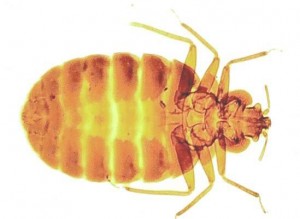
Bed Bug Removal WestGate we are all fully qualified to undertake all aspects of Bedbugs for both domestic and commercial properties throughout WestGate areas. We also use the latest equipment and chemicals for Bed Bug eradication and Bed Bug Prevention. We also offer a Fast Response to all Bed Bug problems and we work 7 days a week so we can be at your property in no time at all.
NO CALL OUT CHARGES
You will also find Pest Control Lincolnshire prices very competitive as our costs are kept to a minimum, however our service that is offered to you is extremely professional and you will find we have a friendly approach and will more than happy to help with any questions that you may have.
Call Our Bed Bug Removal Team at Pest Control LincolnshireToday On: 0800 542 6727
About Bed Bugs:
Adult bedbugs are reddish-brown, flattened, oval, and wingless. Bedbugs have microscopic hairs that give them a banded appearance. Adults grow to approximately 4 – 5 mm in length and 1.5 – 3 mm wide. Newly hatched nymphs are translucent, lighter in color and become browner as they mouth and reach maturity.
Bedbugs use pheromones to communicate regarding nesting locations, attacks, and reproduction.
The life span of bedbugs varies by species and is also dependent on feeding.
Bedbugs are (bloodsucking) insects. Most species feed on humans only when other prey is unavailable. Bedbugs are attracted to their hosts primarily by carbon dioxide, secondarily by warmth, and also by certain chemicals.
A bedbug pierces the skin of its host with two hollow feeding tubes. With one tube it injects its saliva, which contains anesthetics, while with the other it withdraws the blood of its host. After feeding for about five minutes, the bug returns to its hiding place.
Bedbugs are (bloodsucking) insects. Most species feed on humans only when other prey is unavailable. Bedbugs are attracted to their hosts primarily by carbon dioxide, secondarily by warmth, and also by certain chemicals.
Although bedbugs can live for up to a year without feeding, they normally try to feed every five to ten days. In cold weather, bedbugs can live for about a year; at temperatures more conducive to activity and feeding, about 5 months.


